The 8th Anniversary of 709 Crackdown on Human Rights Lawyers: Ten Notable Events Over the Past Year
The 8th Anniversary of 709 Crackdown on Human Rights Lawyers: Ten Notable Events Over the Past Year
The 29 Principles and China Change, September 6, 2023
Preface: With the escalating crackdown on China’s human rights lawyers in recent years, the authorities have developed increasingly sophisticated means for repressing attorneys who take on politically sensitive cases. Instances of prolonged detention without trial, trial without judgment, or secret trial have become increasingly common. In cases when lawyers are allowed to intervene, they are required to promise not to accept interviews from the media, and to sign confidentiality agreements before reviewing case documents. Prior to court hearings, lawyers are again required to enter another set of confidentiality agreements that prevents disclosure of case proceedings and defense arguments. When a case is closed, lawyers are prohibited from revealing the verdict. At the same time, authorities surveil or abduct lawyers’ family members to prevent them from attending hearings. Taken together, these measures have resulted in scarce information about human rights cases, making it harder for the outside world to know the details of those cases, and thus hindering effective efforts by the international community to render support. During the process of compiling and completing this article, human rights lawyer Lu Siwei (卢思位) was arrested on July 28 while transiting through Laos to the U.S. to reunite with his family. Despite numerous calls from human rights organizations and international governments for the release of Lu, there has been little news regarding him up to the present.
1. Xu Zhiyong and Ding Jiaxi were separately sentenced to 14 years and 12 years in prison on charges of subverting state power.
On April 10, 2023, New Citizen Movement leaders Xu Zhiyong (许志永) and Ding Jiaxi (丁家喜) were sentenced to 14 years and 12 years in prison, respectively, by the Intermediate People’s Court of Linyi City in Shandong Province, on charges of “subverting state power” for their participation in gatherings in Xiamen, Fujian in 2019, and Yantai, Shandong in 2018.
Commentary: In their published court statements, Xu Zhiyong and Ding Jiaxi responded to the sentencing with optimism for China’s future. Upon the court sentencing, Families stated that the severe sentences imposed on Ding and Xu, solely for discussing civil society issues in indoor gatherings, are acts of judicial tyranny, and that the authorities intended to create and reinforce a state of fear in Chinese society. In reality, the authorities who rely on terror are themselves full of fear: they dare not even release the verdicts for fear that their ideas will inspire others, they hope to erase all references to Xu and Ding.
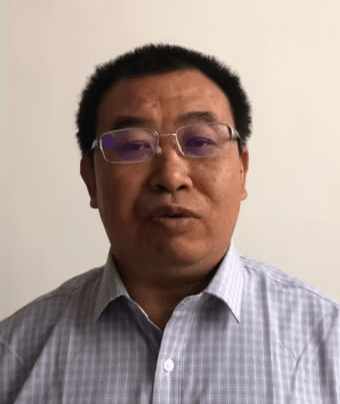
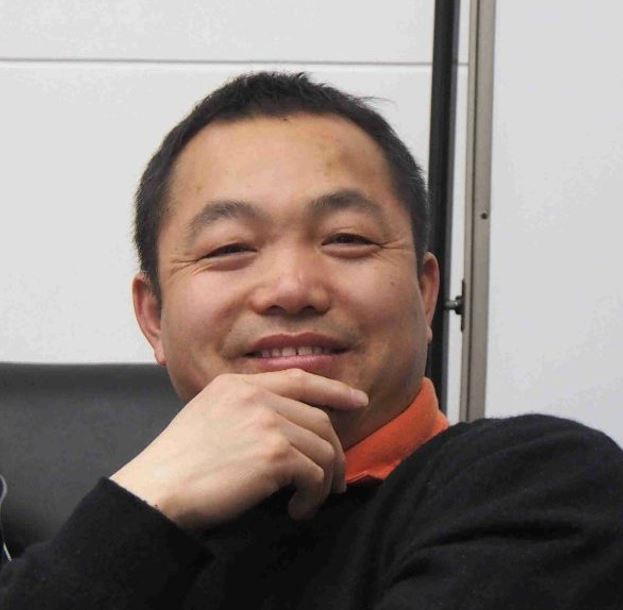
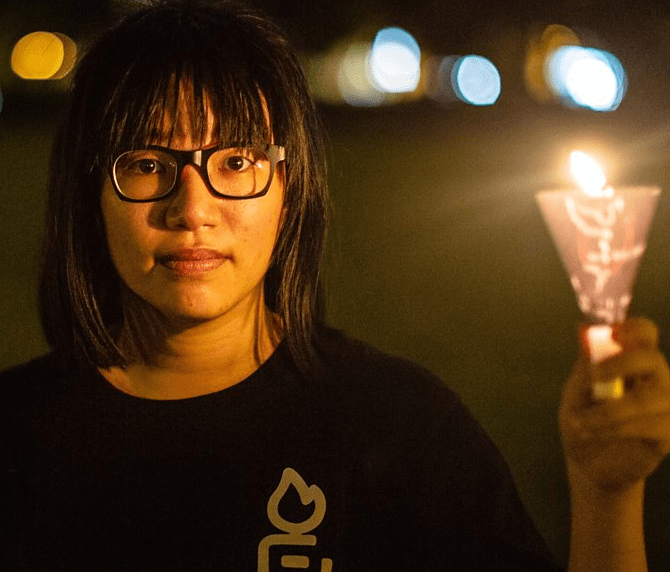
2. Jiang Tianyong, Ding Jiaxi, and Chow Hang-tung received prestigious international awards; Chen Zijuan and Zhou Shifeng collected previously awarded prizes.
On November 3, 2022, lawyer Jiang Tianyong (江天勇) was awarded the 2022 International Bar Association (IBA) Award for Outstanding Contribution to Human Rights. IBA President Sternford Moyo said: “I hope that he will continue to inspire others in the global legal community to remain steadfast in the promotion and protection of these rights and the rule of law.”
On December 20 2022, Ms. Zhang Miao (张淼), on behalf of Zhou Shifeng (周世锋), the director of Beijing Fengrui Law Firm (锋锐律师事务所) who was released from prison in September 2022 after serving a 7-year term, collected the 2015 CCBE Human Rights Award for Fengrui. Stefan von Raumer, Chair of the CCBE Human Rights Committee, noted that lawyer Zhou Shifeng was supported by over 1 million lawyers in Europe. Never has a recipient of this award, including recipients from Russia, declined to receive the prize, which serves not only as an honor but also as security.
On February 1, 2023, the U.S. Department of State announced the recipients of its annual Global Human Rights Defender Awards, among whom was Ding Jiaxi. The State Department said of the recipients that “[they] have demonstrated leadership and courage while promoting and defending human rights and fundamental freedoms” and they “[embodied] the values enshrined in the Universal Declaration of Human Rights.”
On March 25, 2023, Dr. Chen Zijuan (陈紫娟) received the 2021 Franco-German Prize for Human Rights in the German Embassy in Washington, DC, on behalf of her husband, lawyer Chang Weiping (常玮平). The prize honors “his fight against discrimination of persons with HIV, women and LGBTQI+.”
On May 18, 2023, Hong Kong lawyer Chow Hang-tung (邹幸彤) was awarded the 2023 Gwangju Prize for Human Rights in South Korea for her “struggle against the Hong Kong government’s undemocratic, inhumane treatment has become the source of courage and hope for human rights advocates and those longing for democracy around the world.”
Commentary: When so many human rights lawyers have received awards from major democratic countries, international professional associations, and renowned human rights organizations, it attests to the fact that their human rights work has gained widespread recognition. Other Chinese lawyers who have previously received major human rights awards from the international community include Li Heping (李和平), Li Yuhan (李昱函), Wang Yu (王宇), and Yu Wensheng (余文生), Tang Jitian (唐吉田) and more.
3. Public interest advocate Hao Jinsong was sentenced to nine years in prison on trumped-up charges.
On December 17, 2019, Hao Jinsong (郝劲松) was given 15 days of administrative detention for “repeatedly posting sensitive speeches on foreign social media platforms.” Then he was shifted to criminal detention for “picking quarrels and provoking trouble.” After prolonged detention, on July 20, 2023, he was sentenced to nine years in prison on charges of “fraud” and “picking quarrels and provoking trouble” by the Dingxiang County People’s Court in Shanxi Province.
Commentary: Hao Jinsong pioneered public interest litigation in the first decade of the 21st century. He also participated in the people’s representative elections in Beijing’s Haidian District as an independent candidate, and in 2008, he supported a group of Beijing lawyers’ campaign to hold direct elections for the Beijing Lawyers Association as a co-petitioner. Following the 709 crackdown on human rights lawyers in 2015 that struck fear in many people in the profession, he spoke out to foreign media: “It is not a good idea to hold the ‘Global Lawyers Forum’ in China. Given that many lawyers had been imprisoned during the 709 crackdowns in 2015, it is ironic to convene such a meeting of lawyers [from around the world].” Hao Jinsong is a tireless proponent of civil responsibility: “I hope to see more of my compatriots become responsible citizens who are indignant about evildoings, and who sympathize with the powerless.” “We must be courageous enough to stand up for fairness and justice, defending not only our own rights, but also the public interest.” He practices what he preaches.
4. Legal activist Guo Feixiong (Yang Maodong) was blocked from visiting his dying wife in the U.S., further charged with subversion, and sentenced to eight years in prison.
On January 28, 2021, Guo Feixiong (郭飞雄, pseudonym of Yang Maodong, 杨茂东) was barred at Shanghai Pudong Airport from leaving China for the U.S. to visit his wife who had late-term, metastasized colon cancer. The reason given was that his going abroad “could endanger national security.” His repeated petitions and letters to Chinese leaders went unanswered. On December 5, 2021, he was detained. Mrs. Guo was unable to see his wife, who died in January 2022. On May 11, 2023, the Guangzhou Intermediate People’s Court sentenced Guo Feixiong to eight years in prison for the crime of “inciting subversion of state power,” and evidence cited by the prosecution and the court was a new blog he had created and the fact that he had given interviews to overseas Chinese media outlets about the illegal and inhumane exit ban imposed on him.
Commentary: Guo Feixiong’s family tragedy is another deeply saddening humanitarian crisis among the families of Chinese political prisoners following the death of Liu Xiaobo. Guo was one of the pioneers in contemporary legal rights movements, and spent 13 out of the past 17 years in prison. His wife and children were forced to flee China in 2009, leading to a long separation. With the continuous escalation of suppression, even requests of dissident activists to visit their critically ill relatives abroad are seen as challenges to the authorities. Guo Feixiong’s heavy sentence of eight years is a perverse escalation of this harsh repression.
5. Human rights lawyer Qin Yongpei was sentenced to five years in prison on charges of “inciting subversion of state power.”
On March 31, 2023, the Nanning Municipal Intermediate People’s Court sentenced Qin Yongpei (覃永沛) to five years in prison, citing as evidence his having organizing a “club for disbarred lawyers” as well as his online expressions.
Commentary: Qin Yongpei is the founder of Guangxi Baijuming Law Firm (百举鸣律师事务所), where he housed a group of human rights lawyers. As a result, he and his firm had faced close surveillance and threats. In May 2018, the local authorities permanently revoked Qin’s license and shut down his law firm. Following these events and the reality of a large number of human rights lawyers having been disbarred, he initiated a “club for disbarred lawyers” which was meant to be a platform for mutual support. In October 2019, Qin Yongpei was taken into police custody. In its judgment, the court stated that, “by establishing the club for disbarred lawyers, Qin Yongpei encouraged the public to question our government and socialist system, incited the subversion of state power in order to overturn the socialist system.”
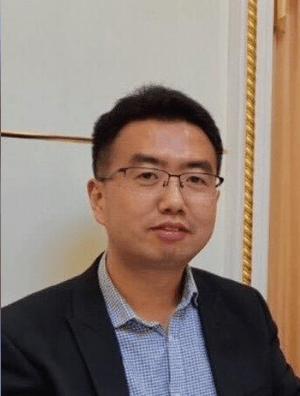
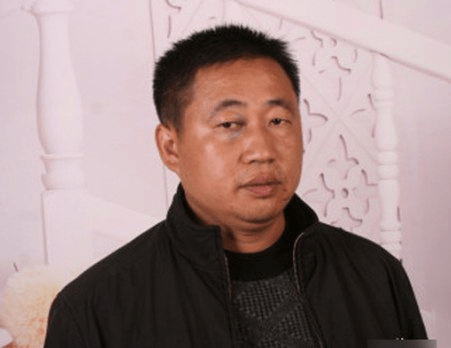
6. In Shaanxi, lawyer Chang Weiping was sentenced to three and half years in prison, while in Hunan, lawyer Xie Yang has been subjected to renewed torture and prolonged detention without trial since January 2022.
On June 8, 2023, the Baoji Municipal Intermediate People’s Court in Shaanxi Province sentenced Chang Weiping to three and half years in prison on charges of “subverting state power.”
On May 17, 2023, after being detained for over a year under an alias, lawyer Xie Yang (谢阳) was granted a first meeting with his lawyers. We’ve since learned that Xie Yang was subjected to beatings, deprivation of food, and wearing 工-shaped hand and foot chains as punishment for maintaining silence during his interrogations, refusing interrogations in extralegal venues, and for demanding to meet with his lawyers.
Commentary: For his human rights work, Chang Weiping’s practice was first suspended in 2018, and in early 2020, he was disbarred. In January 2020, he was detained for ten days after taking part in the Xiamen meeting convened by Xu Zhiyong and Ding Jiaxi the previous December. And for the entire duration of the ten days, he was locked in a “tiger chair” 24 hours a day, causing sustained numbness in his right hand, he later described in a video. In late October 2020, Chang was arrested again.
Xie Yang is a 709 lawyer who in January 2017 first revealed details of torture he suffered during his six months in Residential Surveillance at a Designated Location (RSDL), shocking the international community. Detained again in January 2022, he was again subjected to mistreatment. But he expressed no regret for his ordeal. In a letter to his aging parents, he wrote: “When you sent me to school when I was young, you expected me to serve the country one day. And I hope you understand that, right now, I’m serving my country and serving the Chinese people in my own way.” “Please trust me that I will not lose to them in the argument over the true meaning of the law. Justice may not prevail at the moment, but we are making efforts to achieve it.”
During their embattled practice, being kidnapped, arrested, and tortured has become common fare to Chinese human rights lawyers. What Chang and Xie have revealed is only the tip of the iceberg, and there is a long way to go to eradicate the barbaric torture that exists in China.
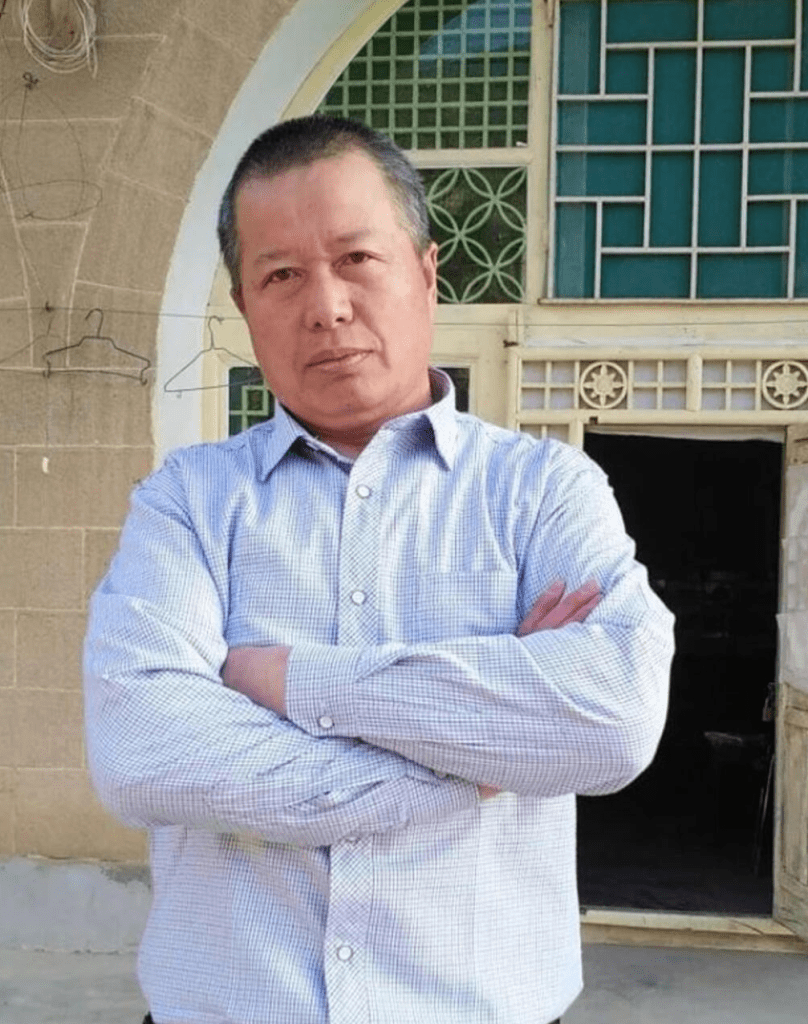
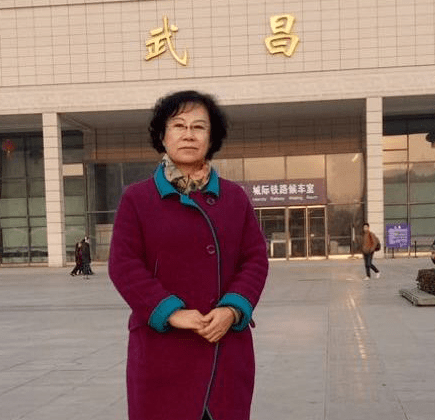
7. Lawyer Gao Zhisheng’s disappearance, and lawyer Li Yuhan’s prolonged detention without trial.
On August 13, 2017, renowned lawyer Gao Zhisheng (高智晟), under soft house arrest in his hometown in Shaanxi and one year after being released from prison, suddenly lost contact with his family in the U.S. and friends. More than five years have passed without any news from or regarding him.
Lawyer Li Yuhan (李昱涵) was charged with “picking quarrels and provoking trouble” and “fraud”, but six years after her detention on September 9, 2017, she has not been tried.
Commentary: For over 17 years, enforced disappearances have been routine for Gao Zhisheng. As one of the most courageous human rights lawyers known for his exposure of horrendous atrocities against Falun Gong practitioners, his fate is a true depiction of the bleak state of human rights and rule of law in China. Li Yuhan is over 70 years old and in poor health. The authorities in Shenyang, Liaoning Province, retaliated against her for her involvement in defending the 709 lawyers. Manipulating procedures to hold human rights defenders and human rights lawyers alike without trial or sentencing has become increasingly common.
8. Lawyer Yu Wensheng and his wife Xu Yan were both detained and formally arrested.
On April 13, 2023, Yu Wensheng and Xu Yan were intercepted and detained on their way to attend an event in the German Embassy in Beijing. They have since been formally arrested on charges of “picking quarrels and provoking trouble” and “inciting subversion of state power.
Commentary: This is the third time Yu Wensheng lost his freedom. But unlike the first two times, this time his wife, who had been his most vocal advocate over the years, was also detained. Clearly, the authorities hoped that, by doing so, they would minimize information about Yu making its way to the public, thus reducing attention on his arrest. Lawyer Yu Wensheng was released from prison only a year ago, in March 2022, after serving four years in prison for “inciting subversion.” On the first anniversary of his release, he wrote: “We’ve struggled in the face of deteriorating human rights and the rule of law. Though we lack power, we persevere, and we are determined to work towards a beautiful future of a free, democratic China.”
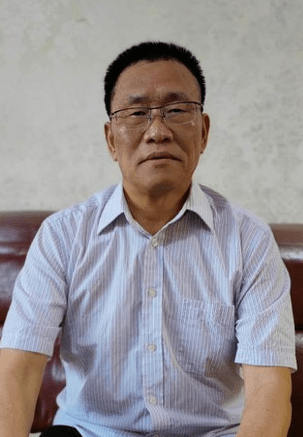
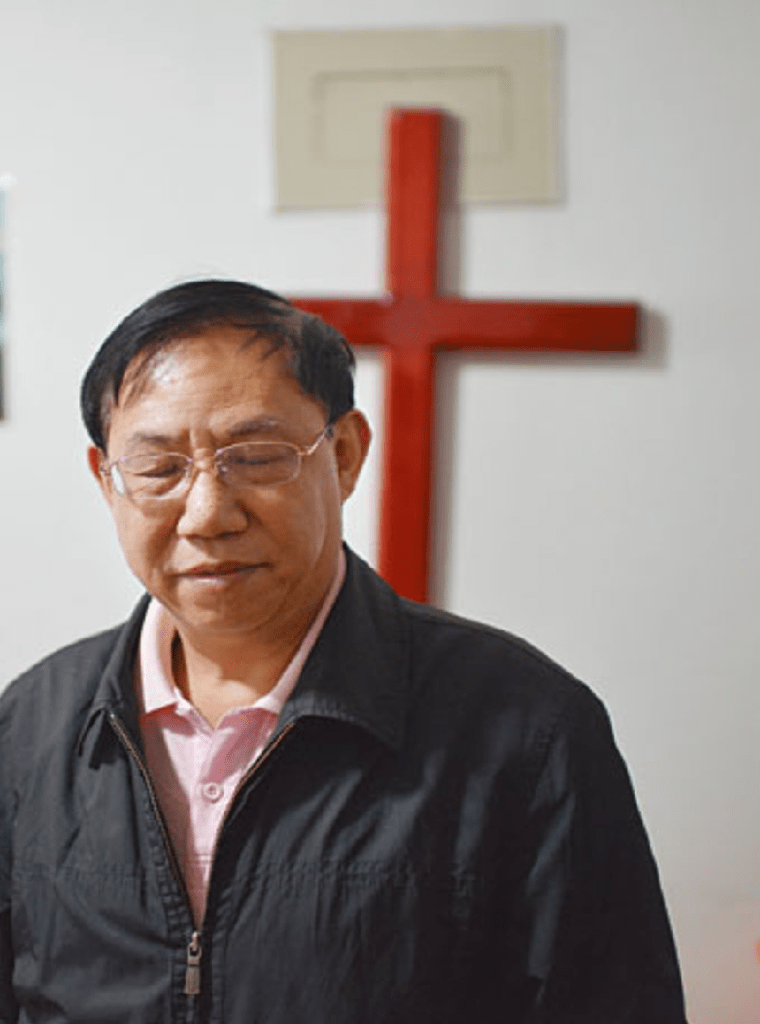
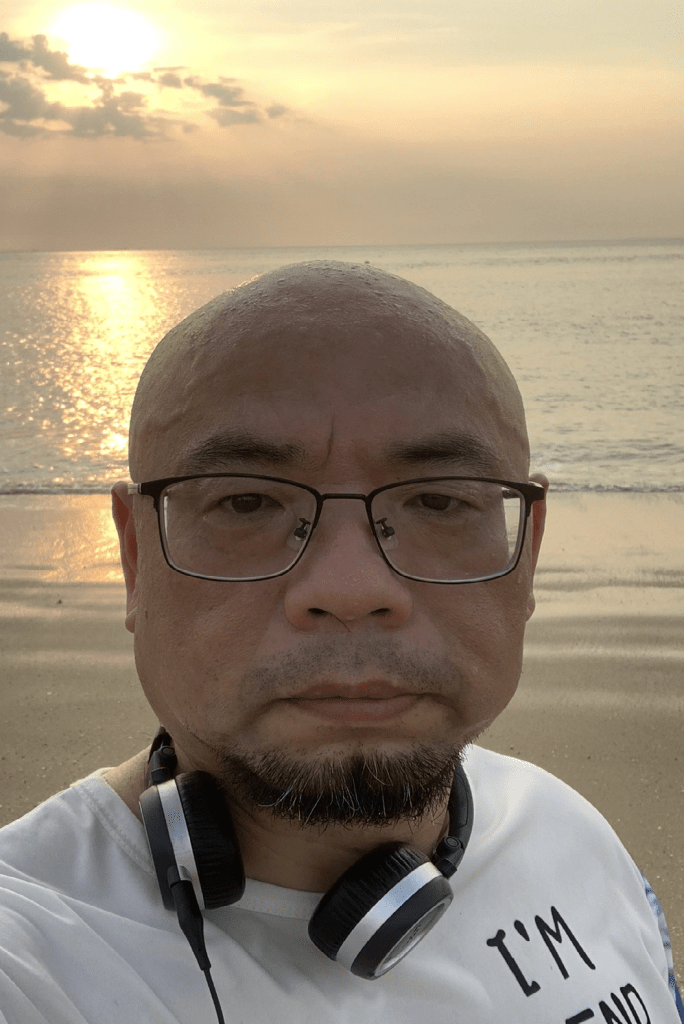
9. The last three 709 detainees have been released from prison.
On September 24, 2022, lawyer Zhou Shifeng was released after serving a seven-year prison term. On March 23, 2023, Hu Shigen (胡石根) was released after serving a seven-and-half-year prison term. On May 18, Wu Gan (吴淦) was released after serving an eight-year prison term.
Commentary: These three received the heaviest sentences in the 709 crackdown. Zhou Shifeng directed Fengrui Law Firm, while Hu Shigen and Wu Gan are renowned human rights activists who had worked with Fengrui. All three were subjected to horrendous torture in RSDL detention and all-out state media smear campaigns which portrayed Fengrui Law Firm as a platform for “subverting state power” and the three as key figures behind it.
Such protracted abuses have not changed them. Wu Gan wrote upon release: “I’ve not become resentful, nor my character deformed. I’m grateful, and my passion for freedom, democracy, the rule of law, and justice has not been extinguished. I have not lost my common sense, cognitive ability, adherence to universal values, enthusiasm, and my original aspiration. I will continue to do my share to better this land of ours.”
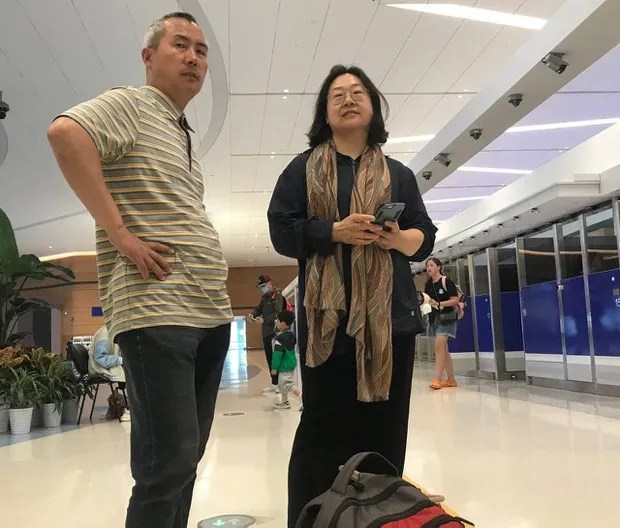
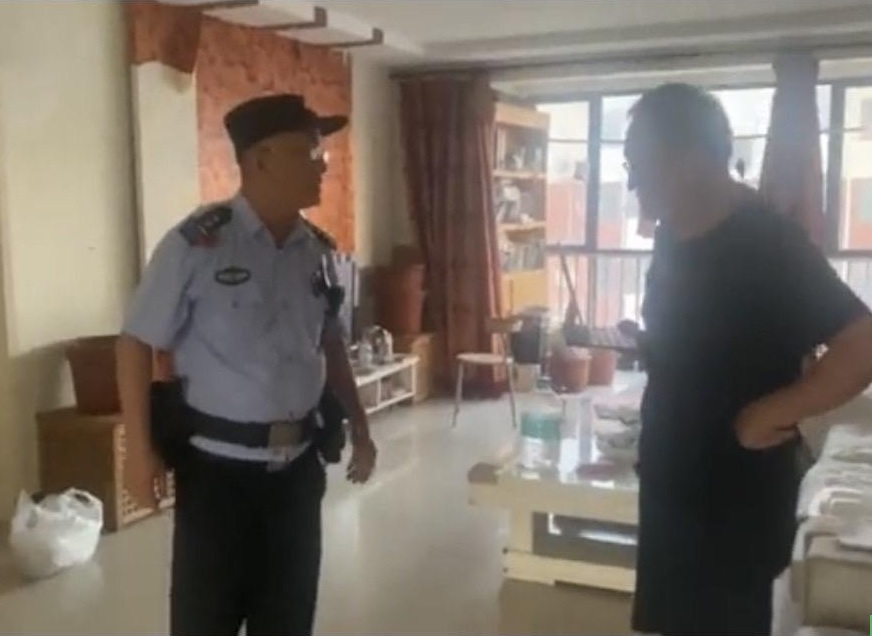
10. Beijing lawyers Li Heping and Wang Quanzhang faced various underhanded attempts at eviction.
Starting from mid-April, 2023, the Beijing police, working with landlords, neighborhood committees, property management companies, and hired thugs, tried to evict the two lawyers’ and their families out of their contracted rental homes. They did so employing an array of methods: cutting off utilities, smashing windows, dismantling doors, stalking their movements, visiting their homes in the middle of night, and sending unidentified thugs to attempt break-ins. At its worst, Wang Quanzhang (王全璋) moved nine times within twenty days with his wife and young son, and at one point the family was reduced to sleeping in their car.
Commentary: The eviction attempts were aimed at driving these two human rights lawyers out of Beijing. Their families fought hard to defend their right to housing. Li Wenzu (李文足), wife of Wang Quanzhang, said, “We must stay strong for the sake of our child.” Wang Qiaoling (王峭岭), wife of Li Heping, said, “If the authorities are doing this to erase the influence of [the human rights lawyers], their efforts are actually drawing public attention to them.” Indeed, the two months of relentless harassment resulted in widespread concern and condemnation in China and abroad. By early July, the harassment abruptly stopped, a hard-earned victory through determination, perseverance, and support from the public. Wang Quanzhang’s allies described his home as a “fortress of freedom.”
Lawyer Li Heping said on Twitter/X, “It’s been eight years since the 709 crackdown. It took eight years for the Chinese to defeat the Japanese invaders. Even the main perpetrators behind the crackdown, then-police chiefs Fu Zhenghua (傅政华) and Sun Lijun (孙力军), have ended up behind bars. How come the persecution of [human rights lawyers] still doesn’t have any end in sight?”











Comments are closed.